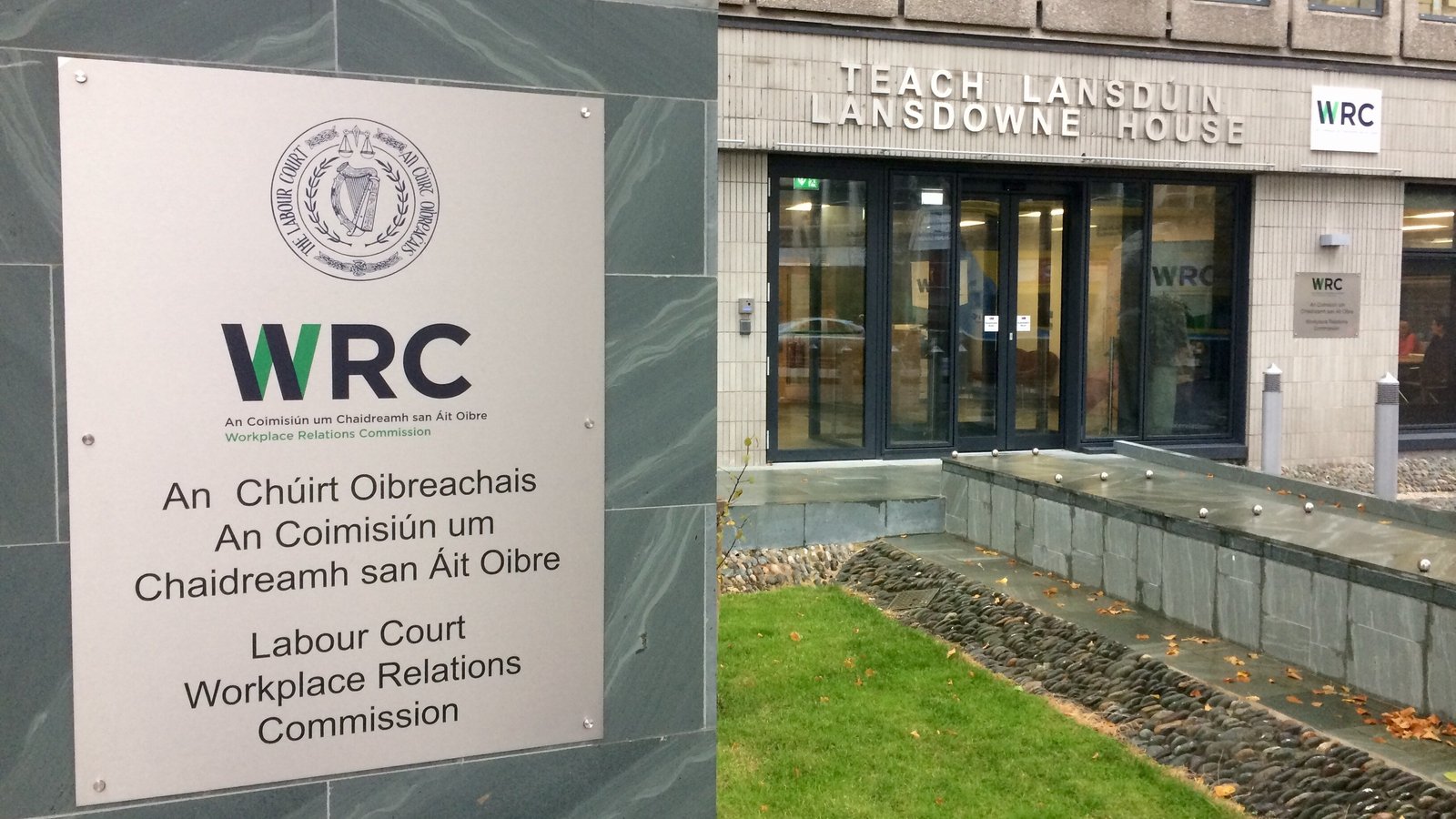Lifetime care volunteer wins case at WRC

A man in his 70s who spent decades as an unwaged volunteer aiding the disabled with care and music therapy until he was “expelled” from a centre in the midlands following a HSE takeover has secured an award of €61,000 for rights breaches.
John Clark told the Workplace Relations Commission (WRC) that yearly costs at the charity had risen from €3m during the time of volunteer co-workers to €11m under a new staffing model.
Mr Clark told a hearing two years ago that he believed he saved the public purse €1.1m by working without an income for the course of his career.
He said he expected to be let stay on at the Camphill Communities of Ireland community in Ballytobin, Callan, Co Kilkenny when he reached retirement age, with its financial support and care lasting “until death” in return for dedicating his career to it.
“That’s what I signed up for 38 years ago, and that’s what I expected,” he told the Commission, giving evidence to a hearing nearly two years ago.
Mr Clark had claimed care charity Camphill Communities of Ireland either unfairly dismissed him or failed to pay him his due redundancy following major reforms to the organisation starting in 2017, which saw long-serving unpaid volunteers replaced with paid staff.
Mr Clark said he was “expelled” and was left with nothing but a non-contributory state pension, and had to rely on his partner and his housemates for financial support.
Giving evidence to a hearing on 28 March 2022, the complainant said he started volunteering in Scotland in the early 1970s before completing several years of training and came to Ireland in the early 1980s to become a full-time volunteer at Ballytobin.
He worked there until 2017, carrying out music therapy, care duties, teaching, training and some work as a physiotherapist, he said.
He also organised festivals and events for residents and oversaw the construction of a new assembly building for the community, he said.
He did not receive either a salary or hourly pay for his work, but had a credit card to pay personal costs under a “needs-based” support system which also provided accommodation, food and travel costs – all of which had to be vouched for with receipts.
“I was fully occupied and I couldn’t seek other work,” he said, adding that a “low average” working week for him would run to 72 hours. He said he thought of himself as being “fully engaged” by the charity, with no other source of income other than the vouched expenses.
He held a company credit card with a €60,000-a-month limit which he used it to pay for both community expenses and personal ones, he said.

“Everything was receipted so it was clear which were my own and which were community expenses,” he said, adding that he could not exceed his budget for various categories of spending, including needs-based spending for long-term volunteers.
These included approved spending on holidays and birthday presents and “modest” entertainment for the unpaid charity volunteers living at the centre.
Other long-term co-workers had credit cards loaded with smaller sums, around €1,000 to €2,000 per month he said.
His evidence was that the average the charity spent on volunteer expenses, including food and lodgings, was €15,000 a year – but that he would have drawn more because of the nature of his work.
He said from around the year 2000 onwards the long-term volunteers gave themselves one free day a week, with any costs incurred put on the company card.
“I’d maybe eat out, go to the cinema,” he said. “No Bob Dylan concerts, much too expensive.”
“I had no income, I’ve never had any other income other than money I used in Camphill – I think we were pretty frugal,” he said.
Mr Clark said he knew yearly costs had risen from €3m during the time of the volunteer co-workers to €11m under the staffing model.
“If we bought a Mars Bar, it was receipted. If we bought a sofa, it was receipted. It went into one of those various columns and was approved,” he said.
“Was it employment? I don’t know if it’s for me to say,” he told the tribunal.
He said he was “unfairly suspended” in the summer of 2017 after the HSE takeover when a matter which had been “thoroughly investigated in 2011” was reopened by the centre’s new operators.
This meant he had to leave the community for 53 weeks during an internal investigation into the allegation – the details of which were not opened to the hearing – which was followed by an independent inquiry.
“I wasn’t suspended back to my home, but away from my home. I had to live in rented accommodation, hotels, whatever I could get,” Mr Clark said.
By the time the investigations concluded his family and housemates were being moved to different situations as the centre was closed down, he said.
“I was asked not to go back,” he said, until all the former live-in service users at the property had been moved on to other care environments – including one man with whom he had lived for 40 years.
He said he met with former Camphill CEO Ann Sheehan, and Joe Lynch, who had been appointed chief operating officer, to discuss whether he could “go on in some capacity” as a caretaker at Ballytobin at one point.
At the meeting he suggested that he might become a “national cultural officer” at the new central headquarters for the charity in Co Kildare, as roles were expanding there and he thought the volunteer ethos should be maintained to some degree.
They told him there “wouldn’t be any money for such a role”, he said.
He agreed with his barrister, Stephen O’Sullivan BL, appearing instructed by solicitor Michael Lanigan, that there was no disputing that his engagement with Camphill ended in 2018.
“That was unilateral from Camphill’s end,” Mr Clark said and added he was never offered terms and conditions, but that it had been suggested he could “go on volunteering”.
He said he was then presented with a volunteer agreement designed for someone “who’d come for a year” and not for “someone who’d spent their whole life volunteering” for Camphill.
The charity, which was represented by solicitor Sarah Conroy, maintained Mr Clark had stated to it in writing in December 2018 that he did not want “formal employment” and had himself stated he was “never employed”.
The charity’s CEO disputed in her evidence that Mr Clark’s pay would have been worth €45,000 a year as he claimed and said the worker would have given a €15-an-hour job as a tutor if he had transitioned to an employment contract, or €23,000 a year.
Camphill’s view was that Mr Clark “did not satisfy” the legal tests for employment status, but in a decision published today WRC adjudicator Anne McElduff disagreed and accepted that he was entitled to pursue his employment rights claims.
Ms McElduff awarded Mr Clark €60,000 for loss of earnings on foot of a breach of the Unfair Dismissals Act 1977, finding the charity had dismissed him where there was probably no redundancy situation and without fair procedures.
The adjudicator also awarded €1,000 for a breach of the Terms of Employment (Information) Act 1994 for the failure to provide a written contract.
As there was no redundancy, Ms McElduff rejected Mr Clark’s claim under the Redundancy Payments Act 1967.





